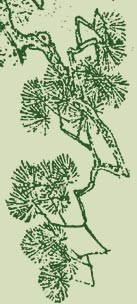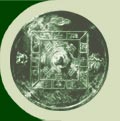

Q: What is Chinese herbal medicine?
A: Chinese herbal medicine consists of understanding and mastering theory, strategy, formulas, and substances. This means that once one identifies a patient's problem, the strategy of treatment, the formula that incorporates that strategy, and the specific herbs that constitute the formula for that particular patient will naturally follow. This identification of a formula with a disorder dates back to the end of the third century B.C. Since that time, a thorough understanding of the formulas has been essential to the practice of traditional Chinese herbal medicine. Right now, in China, there is a government-recognized Chinese herbal pharmacopoeia that contains information on about 8000 herbs. Of these, about 6000 are plants; 600-700 are made from animal parts; less than 100 are minerals; and another 100 or so are processed products, such as combinations of herbs or fermented mixtures. In Traditional Chinese Medicine, all nature-based medicines are referred to as herbs, even when they don't come from plant sources. Unlike in the West, where normally one herb is used for a particular set of symptoms, Chinese herbs are prescribed together according to four factors: their nature, their flavor, their direction (upward or downward), and the meridian with which they have an affinity. Chinese herbology is rooted within the same philosophical theories of Yin and Yang. A variety of herbs, roots and/or minerals are combined in order to regulate the Yin/Yang within the body, clearing away excess or deficiency in an effort to recreate balance within the body.
Q: How are Chinese herbs prescribed?
A: With thousands of herbs for your practitioner to choose from, you may wonder how an herbalist decides upon the right ones for your treatment. First, we classify herbal medicines according to the principles of Chinese medicine: in other words, by their functions. There are lists of herbs to tonify qi, for example, move blood, calm the liver; herbs to clear heat, eliminate dampness, and so on. These categories are then broken down further into herbs that work on specific symptoms. For instance, some herbs that clear heat would be used for damp heat conditions (such as kidney infections); others would be best for empty heat (female hormone disorders, for instance); and others for heat caused by infections or fevers. A cough might be a "cold" cough (as in chronic cough in old people), a "heat" cough (as in a child with a cold), or an asthma cough, so different herb combinations would be prescribed for each of these. The prescription is refined even further to take into account your age, your gender, your general condition, and your immediate symptoms. Even if you and your child have the same flu bug, you are likely to get two different herb prescriptions.
Q: Why might my acupuncturist prescribe herbs?
A: Chinese herbs can be a powerful adjunct to acupuncture care. Herbs can strengthen the body, or clear it of excess problems like a cold, fever, or acute pain. Sometimes your practitioner may suggest starting with herbs, and then adding acupuncture to your treatment. They will do this in order to build up your internal strength so your body can receive the full benefits acupuncture has to offer.
Q: How do I take Chinese herbal medicine?
A: The classic way of ingesting Chinese herbs is to make a decoction from raw dried materials. This means that the herbs are cooked at a low boil for a long time and then drunk as a tea. If you've never had a decoction before, be prepared: this is nothing like the herbal teas you buy at the grocery store. When you cook Chinese herbs the smell is pungent and the taste, to the North American tongue, is quite bitter. Even in China, children have to be bribed with candy to take it. There is a proverb that says, "Your mother's strong words may be hard on your ears, but good for your character. Good medicine is bitter in your mouth, but sweet for your health." An ability to "eat bitter" is considered a good thing in Chinese culture and medicine, though the concept is harder to sell in North America, where people are used to having the taste of over-the-counter medicines disguised with sugar flavorings. Extract granules are a popular method for taking Chinese herbs that maintains the versatility and potency of "loose herbs," but is more convenient and usually better tasting. Extract granules are dried (dehydrated) decoctions that come as a gritty powder that is mixed with hot water to make an instant drink. These come both as premixed formulas and single herbs. Patent medicines work well for people who don't have the time or energy to cook decoctions, or for those whose conditions are either less serious or have improved and stabilized. They are also good for children, as it's difficult to poor nasty-tasting decoctions into them. For minor ailments, you can buy these pills or syrups yourself at a Chinese herbalist's or grocery store.
Q: Are Chinese herbs safe?
A: When people are first exposed to Chinese herbal medicines, they often ask whether they are safe. Chinese herbs are very safe when prescribed by a properly trained practitioner. Today, in Chinese medicine universities, students are taught both traditional herbology and modern biochemistry, to make sure they have detailed knowledge of the effects, uses, and contraindications of herbs. Herbal medicine is distinct from medicine based on pharmaceutical drugs. Firstly, because of the complexity of plant materials it is far more balanced than medicine based on isolated active ingredients and is far less likely to cause side effects. Secondly, because herbs are typically prescribed in combination, the different components of a formula balance each other, and they undergo a mutual synergy, which increases efficacy and enhances safety. Thirdly, herbal medicine seeks primarily to correct internal imbalances rather than to treat symptoms alone, and therapeutic intervention is designed to encourage this self-healing process.
Q: Can I take Chinese herbs with my vitamins or homeopathic remedies?
A: Herbs may be combined with other supplements, although many herbs have some nutritional value and you may find that you may not need as many vitamins. Some American supplements combine vitamins & minerals with Chinese herbs for particular needs. From a Chinese medical viewpoint, herbs can safely be taken along with homeopathic remedies, although a classical homeopath will most likely state the opposite. The therapeutic strategy used is very different, so it may be better to choose one approach and stick with it. Chinese herbs are more natural - and in my bias much more nourishing - than homeopathic remedies which work on a subtle energetic level.
Q: Who can benefit from Chinese herbal medicine?
A: An NCCAOM certified Chinese herbal practitioner can safely prescribe herbal medicine for people of any age or constitution. Your practitioner will take any previous or current illness or medication into account before providing treatment. With suitable adjustments for dosage and with some provisions determined by your herbalist, young and old, pregnant women, newborns and children can all be treated very well with Chinese herbs.
Q: What conditions are treatable with Chinese herbs?
A: Chinese medicine is successfully used for a very wide range of conditions. Among the more commonly treated disorders are:
- Skin disease, including eczema, psoriasis, acne, rosacea, urticaria
- Gastro-intestinal disorders, including irritable bowel syndrome, chronic constipation, ulcerative colitis
- Gynecological conditions, including pre-menstrual syndrome and dysmenorrhoea, endometriosis, infertility
- Hepatitis and HIV: some promising results have been obtained for treatment of Hepatitis C, and supportive treatment may be beneficial in the case of HIV
- Chronic fatigue syndromes, whether with a background of viral infection or in other situations
- Respiratory conditions, including asthma, bronchitis, and chronic coughs, allergic and perennial rhinitis and sinusitis
- Rheumatological conditions (e.g. osteoarthritis and rheumatoid arthritis)
- Urinary conditions including chronic cystitis
- Psychological problems (e.g. depression, anxiety)
- Children's diseases
Q: How soon will I see results?
A: If you choose an herbal formula with the help of a trained herbalist you will be choosing a formula that is uniquely suited for you. That means you can expect to see results. The length of treatment required will depend on the severity of the condition, its duration, and the general health of the patient. For acute cases, relief can be immediate or within a few hours of drinking a decoction. Chronic conditions require longer treatment time. In some conditions the body must be strengthened before we can proceed to the main complaint. General signs of progress and improvement are seen soon, usually within a few weeks after beginning treatment.
Q: What is the training for Chinese herbal medicine in the USA?
A: Chinese herbal medicine in the United States was long practiced in Asian immigrant communities, while acupuncture colleges have added herbal programs only for the past decade or so. A majority of colleges now offer herbal training with a minimum of 450 hours, which is prerequisite for taking the national certification exam in herbology given by the National Certification Commission for Acupuncture and Oriental Medicine (NCCAOM). Those who have passed the exam have earned the title Dipl. C.H. (NCCAOM), Diplomate of Chinese Herbology of the NCCAOM.
Q: How much do Chinese herbs cost?
A: There are no standard prices for treatment or herbs. This will depend on the individual practitioner and the part of the country you are in. Many private health insurance companies are now covering acupuncture and a few will also pay for herbal treatment. You should contact your insurance company to check.
